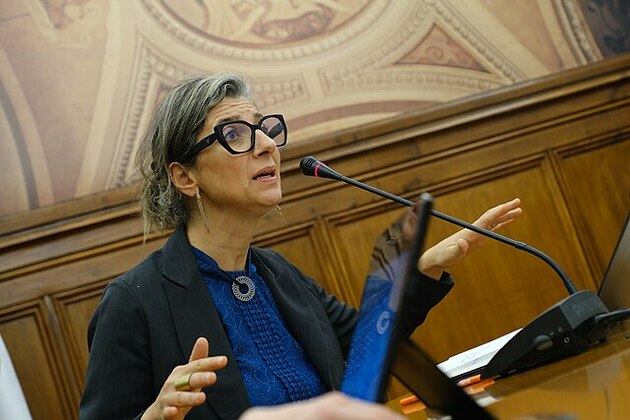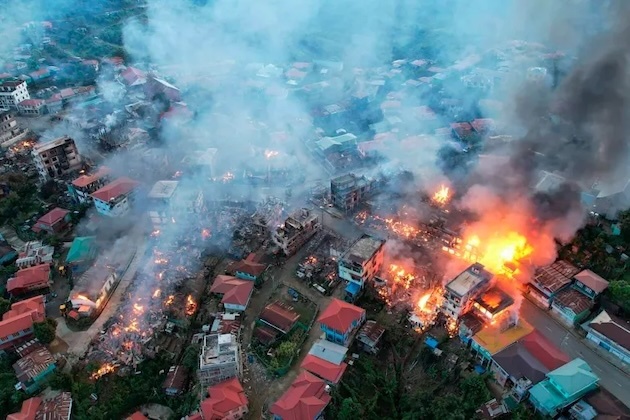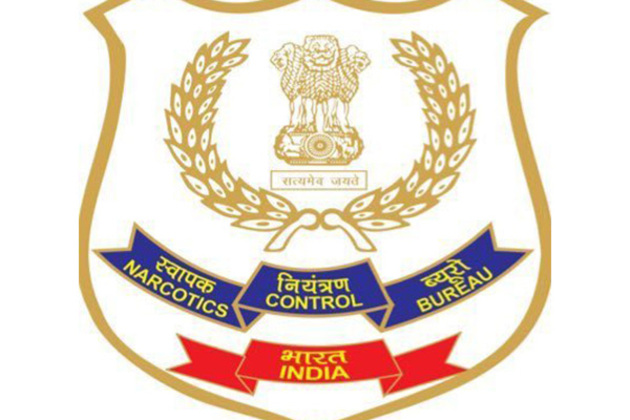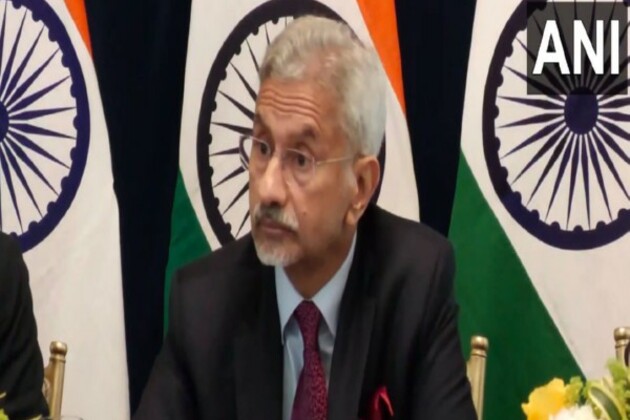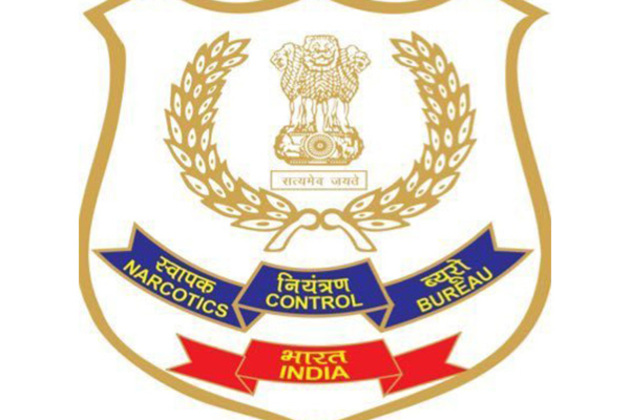What are 'planetary boundaries' and why should we care?
The Conversation
19 Sep 2023, 12:08 GMT+10
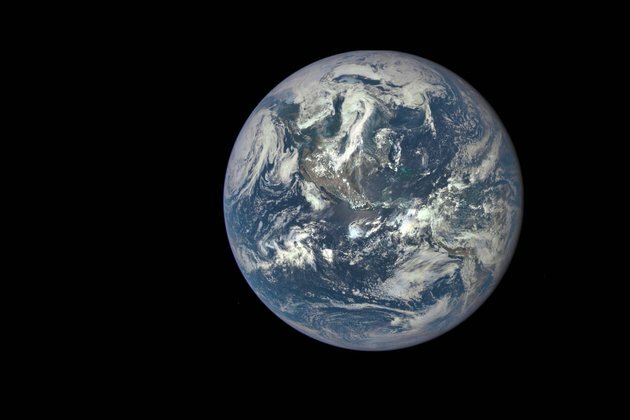
As far as we know, there is exactly one planet in our Solar System - and the galaxy - which hosts life. And you're on it.
For the first 800 million years, Earth was dead. Then life began making itself at home. For over three billion years, lifeforms have helped shape their own environment. Earth's energy balance (commonly known as the climate) and its interactions with trillions of species is the main determinant of environmental conditions.
As you know, one species - ours - is exceptionally good at changing our environment to suit us. The problem is, we're now too good at it. We chop down forests, remove mountains to get at ore bodies, take over grassland, fish out entire seas, create and unleash novel chemicals and pump huge quantities of nutrients from fertiliser into the system. These and many more undermine the hidden life support system on which we rely.
What are planetary boundaries?
Almost 15 years ago, this article's lead author helped create something called "planetary boundaries" to make clear what damage we had done.
We teased apart nine processes vital to the Earth system.
Three are based on what we take from the system:
- biodiversity loss
- fresh water
- land use.
The remaining six come from waste we deposit back into the environment:
- greenhouse gases (which cause climate change and ocean acidification)
- ozone depleting chemicals
- novel entities (plastic, concrete, synthetic chemicals and genetically modified organisms which owe their existence to us)
- aerosols
- nutrient overload (reactive nitrogen and phosphorus from fertilisers)
If we keep our activities to a safe level, the sheer exuberance of life and the planet's own processes can handle it. But in six out of nine vital life support systems, we have blown well past the safe zone. And we're now in the danger zone, where we - as well as every other species - are now at risk.
Our breach of boundaries is very new
In the year 1900, there were around 1.6 billion humans - nearly all of them poor. Now there are 8 billion of us, and some of them are rich. And nearly all of us use fossil fuels, plastics, chemicals and products from intensive agriculture.
It can be very easy to live our lives and only occasionally glimpse the reality. You might have flown over palm oil plantations where rainforest was. Seen blue-green algal blooms or fish kills. You might have wondered where all the animals or bugs were on a bushwalk.
Read more: Humanity is in the existential danger zone, study confirms
But when we zoom out and look at the sum total of our impacts, the story is clear. Put bluntly, we are eating away at our own life support systems. And this has happened extraordinarily recently. If we keep going, we risk triggering a dramatic and potentially irreversible change in living conditions.
Like all other living organisms, we survive by using Earth's resources. We once believed these resources were unlimited. But we now know there are hard limits.
Take fresh water - essential to life on land. If we pump too much water from rivers, lakes and aquifers for farming, industry or cities, we risk hitting that hard limit. This isn't hypothetical - places like India and California are close to that limit.
How are these boundaries calculated?
Remember - the entirety of human civilisation, the flowering of culture, religion, agriculture and cities - has taken place only in the last 10-12,000 years. For the roughly 190,000 years before that, we were nomadic hunter-gatherers. What changed?
The climate, for one. We entered a climate sweet spot, with relatively stable and warm conditions. Gone were the recurring ice ages. Many experts believe there's a connection here - stable climate, rise of civilisation, though this is hard to establish with certainty.
What we do know is we can thrive under these conditions. We don't know for certain our civilisation as we know it can thrive if they are different. We would be foolish to risk pushing our supporting envelope to breaking point.
That's why we and many other independent scientists have worked as hard as we have to develop the framework of planetary boundaries and keep it up-to-date as new science comes in.
How do we know if we've breached the boundaries?
The Earth's environmental conditions have changed many times in its long history. Climate is a good example here. We know the Earth looked very different when temperatures were higher or lower. Palms once grew in Antarctica. These swings from hothouse to ice age let us estimate the boundary beyond which our activities can upset the process.
These are boundaries, not thresholds. When we cross one, it doesn't trigger immediate disaster. And it's entirely possible to bring our activities back from unsafe to safe. We've done it already in the 1990s, when international cooperation quickly phased out ozone depleting chemicals and stopped the dangerous ozone hole from getting ever-bigger.
So how are we doing? Not great.
In last week's update, the research team found we had now gone beyond the safe zone into dangerous territory in six of the nine processes. We are still in the green for ozone-depleting chemicals. Ocean-acidification is still, just, in the green, and so is aerosol pollution and dust.
But on climate change, deforestation, biodiversity loss, synthetic chemicals such as plastics, freshwater depletion, and nitrogen/phosphorus use, we're well out of the safer zone. On these six, we're deep in the red zone.
We're keeping the party going as long as possible. But it can't continue indefinitely. The bill comes due. The faster we do for the other boundaries what we did for ozone-depleting chemicals, the safer all of us will be.
Authors: Katherine Richardson - Professor in Biological Oceanography, University of Copenhagen | Xuemei Bai - Distinguished Professor, Australian National University 
 Share
Share
 Tweet
Tweet
 Share
Share
 Flip
Flip
 Email
Email
Watch latest videos
Subscribe and Follow
Get a daily dose of Perth Herald news through our daily email, its complimentary and keeps you fully up to date with world and business news as well.
News RELEASES
Publish news of your business, community or sports group, personnel appointments, major event and more by submitting a news release to Perth Herald.
More InformationInternational Business
SectionOver 60 companies named in UN report on Israel-Gaza conflict
GENEVA, Switzerland: A new United Nations report alleges that dozens of global corporations are profiting from and helping sustain...
Persson family steps up H&M share purchases, sparks buyout talk
LONDON/STOCKHOLM: The Persson family is ramping up its investment in the H&M fashion empire, fueling renewed speculation about a potential...
Shell rejects claim of early merger talks with BP
LONDON, U.K.: British oil giant Shell has denied reports that it is in talks to acquire rival oil company BP. The Wall Street Journal...
Trump-backed crypto project gets $100 million boost from UAE fund
LONDON, U.K.: A little-known investment fund based in the United Arab Emirates has emerged as the most prominent public backer of U.S....
Australian PM rejects US pressure to ease biosecurity rules
SYDNEY, Australia: Australia will not ease its strict biosecurity rules during trade talks with the United States, Prime Minister Anthony...
Microsoft to lay off nearly 4% of its workforce
Washington DC [US], July 3 (ANI): American tech giant Microsoft will lay off nearly 9,000 employees, about 4 per cent of its workforce...
Australia
SectionUN Demands End to Myanmar Violence as Junta’s Election Plans Risk Further Instability
Nearly three months after a devastating earthquake struck Myanmar, the country remains trapped in a deepening crisis, compounded by...
Fresh IVF error raises alarm over clinic safety and oversight
MELBOURNE, Australia: A second embryo mix-up in just two months has pushed one of Australia's largest IVF providers back into the spotlight,...
Australian PM rejects US pressure to ease biosecurity rules
SYDNEY, Australia: Australia will not ease its strict biosecurity rules during trade talks with the United States, Prime Minister Anthony...
NCB busts global drug cartel using encrypted apps, crypto and B2B platforms
New Delhi [India], July 4 (ANI): In one of the largest crackdowns on the illegal pharmaceutical trade, the Narcotics Control Bureau...
"Issue of great concern": Jaishankar on South China Sea
Washington DC [US], July 3 (ANI): External Affairs Minister S Jaishankar said that the South China Sea was discussed during the Quad...
NCB busts global drug cartel, eight arrested
New Delhi [India], July 3 (ANI):Union Home Minister Amit Shah has congratulated the Narcotics Control Bureau (NCB) and all agencies...

